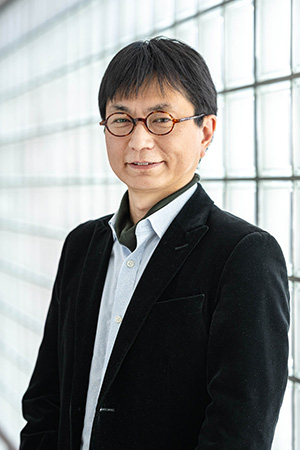
- HOME
- Genome Dynamics Project
Genome Dynamics Project
Elucidating mechanisms of genome inheritance and characterizing diseases caused by genome instability
Sasanuma graduated from the Faculty of Science at Osaka University. He began his professional carrier in the drug discovery division of Ajinomoto Co., Inc.. Subsequently, he pursued doctoral studies at RIKEN and obtained his PhD from Saitama University. Dr. Sasanuma conducted research on meiotic recombination at both the University of Tokyo and Osaka University. His research interests later expanded to include chromosome instability and cancer development during his tenure at Kyoto University's Faculty of Medicine. In 2024, Dr. Sasanuma was appointed as the Project Leader of the Genome Dynamics Project.
Backgrounds
The human genome, comprising approximately 3 billion base pairs, is frequently subjected to damage from both extrinsic and intrinsic factors. While the majority of this damage is effectively repaired, a subset remains unrepaired, leading to mutations. Although many of these mutations do not significantly impact cellular function, those that alter protein activity can influence cellular phenotypes, including growth rate and resistance to anti-cancer agents. In certain instances, cells may arise that are incapable of regulating their proliferation. These "cells that cannot cease proliferating" essentially represent cancer cells.
Objectives
- To elucidate the molecular mechanisms of genome DNA replication that are conserved from human cells to bacteria
- To elucidate the physiological significance of the unique DNA structures of the genome in its stable inheritance and maintenance
- To create new diagnostic and therapeutic strategies against cancer and other diseases on the basis of new findings
Members
Project Leader Hiroyuki Sasanuma
- Hisao Masai
- Zhiying You
- Taku Tanaka
- Yutaka Kanoh
- Shintaro Yamada
- Kenji Kitajima
- Kosuke Tanegashima
- Youichi Tajima
- Tomohiro Iguchi
- Hayato Hirai
- Fuyuko Yoshida
